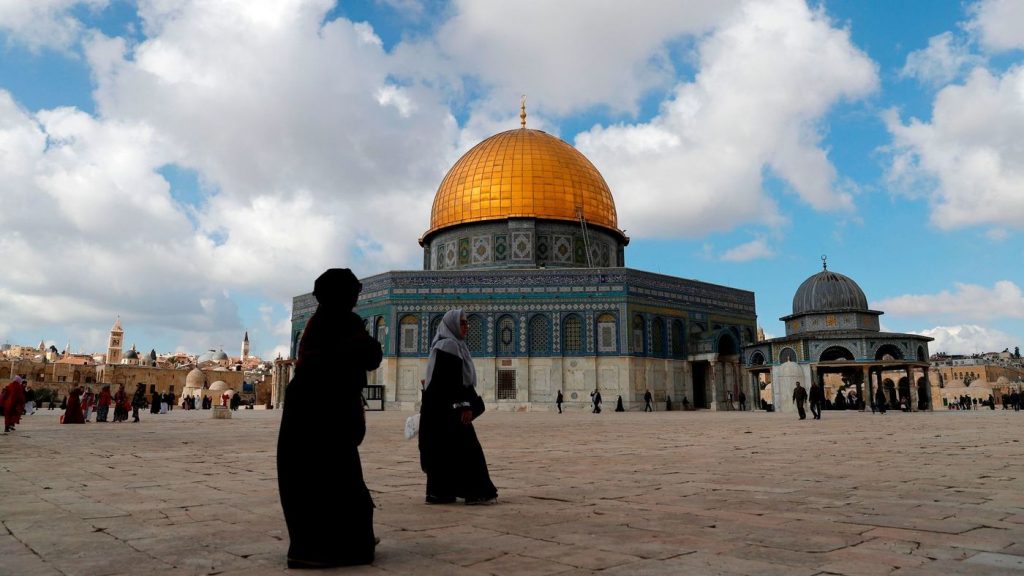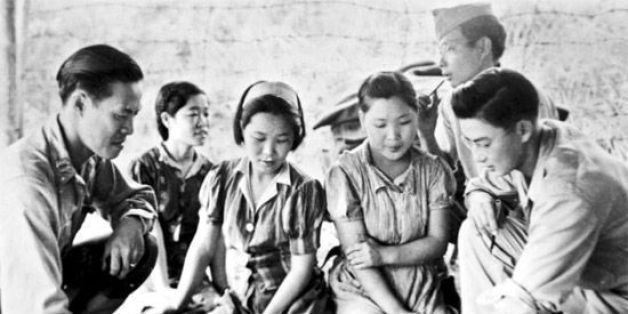Africa and Middle EastAllAllAsia and OceaniaOngoingOngoing
Unwilling to Concede: From Jerusalem the Holy City to Korean Comfort Women
Historically, political leaders across space and time have used hotly debated issues and agreements to forward their own political agendas. Often times, even after they are diplomatically resolved, entities and countries will continue to maintain their status quo- even if ineffective for the final goal: peace and reconciliation. From the ultra-religious streets of Jerusalem to resolving bilateral ties with Japan over Korean Comfort Women, some parties won’t give up a little to win a lot.
The Case for Jerusalem
In the Israeli-Palestinian conflict, the issue of rights to Jerusalem continues to be one of the most controversial encompassing issues. Jerusalem is considered a holy city for Abrahamic religions- Christianity, Islam and Judaism. Currently, Jerusalem is under Israeli control, and is a critical point in all peace processes and negotiations between Israelis and Palestinians. During its long and tumultuous history, the Holy City has been attacked 52 times, captured and recaptured 44 times, besieged 23 times, and destroyed twice.
Islam
Jerusalem is home to the Al-Aqsa Mosque, the third holiest site in Islam. Muslims believe that the Prophet Mohammad was transported from Mecca to the Al Aqsa Mosque in Jerusalem during his night journey. Due to this religious significance, Muslims used to pray towards Jerusalem, and the prophet designated the Mosque a site for pilgrimage.
Christianity
Within the context of Christian traditions, Jerusalem was where Jesus was brought as a child to be presented at the Temple. The Old City houses the Church of the Holy Sepulcher where Jesus was said to have been crucified and later resurrected. Today, the complex around the church serves as the headquarters of several denominations of Christianity.
Judaism
Jerusalem houses the Western Wall in the Old City. The wall is the only remaining structure from the Second Temple of Jerusalem, and was destroyed by the Romans in 70 A.D. According to Jewish tradition, the Holy Spirit resided within the walls of the Temple. In addition, the hills of Jerusalem were where Abraham was sent to sacrifice his son Isaac. Both were considered as patriarchs of the religion.
Plans for Peace
Although there have been countless plans to divide the city, all peace talks and negotiations since the country’s inception in 1948 have failed. Israelis claim that Jerusalem is the eternal capital of the Jewish state, while Palestinians claim Jerusalem as the capital of the country that was stolen from them by Israeli occupation. Violent clashes in the city, in the territories, and in the country, have proven that the two are not yet ready to reach a final and lasting solution to their intractable conflict.

Korean Comfort Women
During the height of World War 2, Comfort Women were those who served in military brothels before and during the war. Comfort stations were run in countries occupied by Imperial Japan including Burma, Thailand, Vietnam, Malaysia, Taiwan, the Dutch East Indies, and Timor. Numerical documentation varies from source to source regarding the number of women made to serve in comfort stations. After losing the war, the Japanese attempted to reconcile several times with the Koreans regarding an array of disputes.
Restoring Diplomatic Ties
After 14 years of negotiations, the Treaty on Basic Relations between Japan and the Republic of Korea concluded on June 22nd ,1965. Aims of the treaty were to provide diplomatic ties and consular relations between the two countries. The document affirmed that the government of the Republic of Korea is the only lawful government; established agreements regarding economic cooperation; legal status and treatment issues of Korean nationals residing in Japan; and the settling of all other disputes between the two.
Monetary Compensation
In 1994, Japan established the Asian Women’s Fund for compensating those who served as comfort women during wartime. The fund was not exclusive for Korean Comfort Women, but included those from Philippines, Taiwan, the Netherlands, and Indonesia. Over 5 billion yen from private donations and government funding was provided.
Official Apology
An official apology by the Japanese Prime Minister to the South Korean people occurred in 2015. This deal was meant to finally and irreversibly solve the comfort women issue between the two countries. Moon Jae-in’s election after the 2015 agreement posed a new challenge, as he called for its dismissal. Public opinion from both sides varies greatly. Some see this is a diplomatic manipulation used to coerce one country or the other.
Plans for Peace
Although the two countries share a close geography, history and contemporary democratic ideals, it seems like this issue might never be put to rest. Decades of push back from the Korean government, despite several treaties, official apologies and monetary compensations seems to be taking a toll on bilateral relations. With the number of Korean Comfort Women rapidly dwindling due to old age, time is of the essence for both governments to move forward together.




